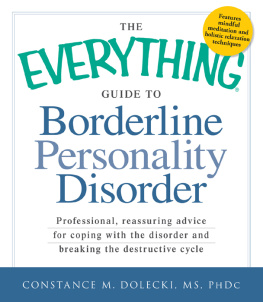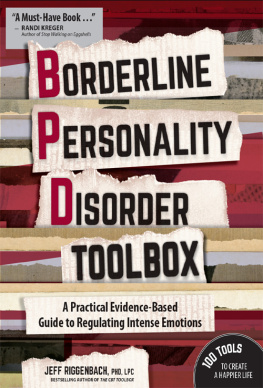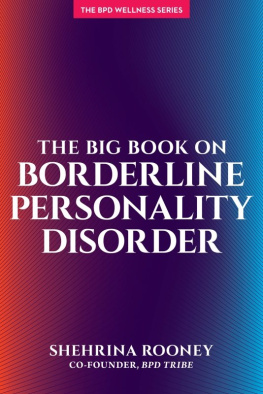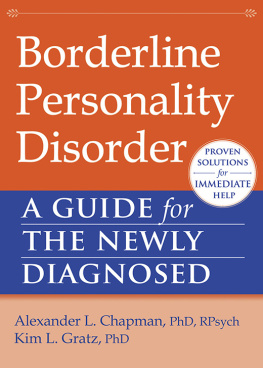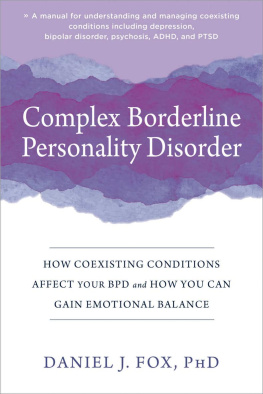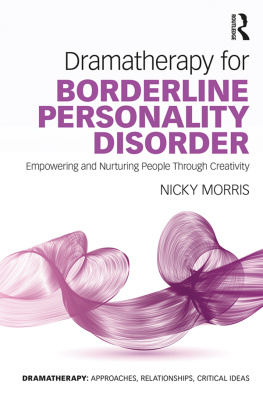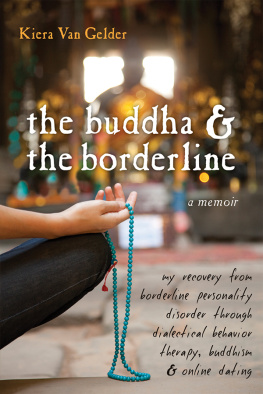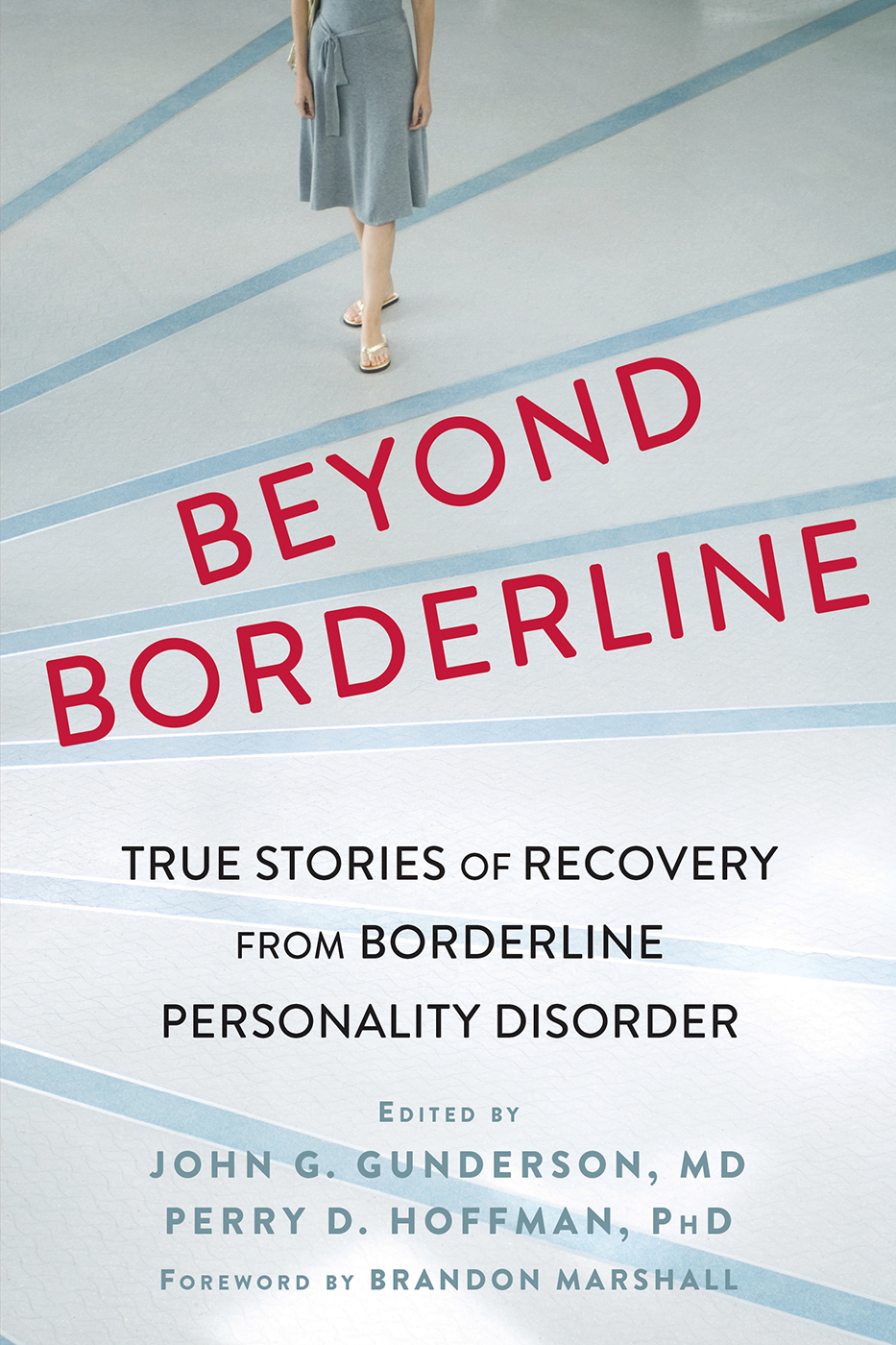
These survivors hit their mark in helping to change the conversation about borderline personality disorder (BPD), from one of fear and misunderstanding to one of empathy, evidence-based treatment, and hope. BPD is a relatively new DSM diagnosis with a ten percent suicide rateand relatively new evidence-based treatments. Studies show that nearly forty percent of individuals diagnosed with bipolar disorder in fact have BPD, as the editors note. These BPD survivors describe more stable, less chaotic lives, as well as pure gratitude for the mental health professionals who diagnosed their BPD and provided either evidence-based treatment or otherwise compassionate and committed care.
Jim Payne, former president of the National Alliance on Mental Illness
Saying that these are important stories is not enough. These are essential stories, to be read and digested by anyone with BPD, anyone who has a loved one with BPD, and any professionals (not just mental health professionals) who work with people with BPD. These wonderful and courageous authors help us understand their suffering, and then show us how they created hope, and a life worth living, from the depths of despair. This is truly an educational and inspirational book.
Alan E. Fruzzetti, PhD, professor and director of dialectical behavior therapy (DBT) and research program department of psychology at the University of Nevada, Reno
This compelling book grasps the tragedy and suffering of BPD in a way that I hope will reduce some of the stigma of the disorder. I am quite happy to see they have included stories of people finding their way out of hell. It is important to appreciate that once in hell, it is possible to climb out of it.
Marsha Linehan, PhD, ABPP, developer of dialectical behavior therapy (DBT)
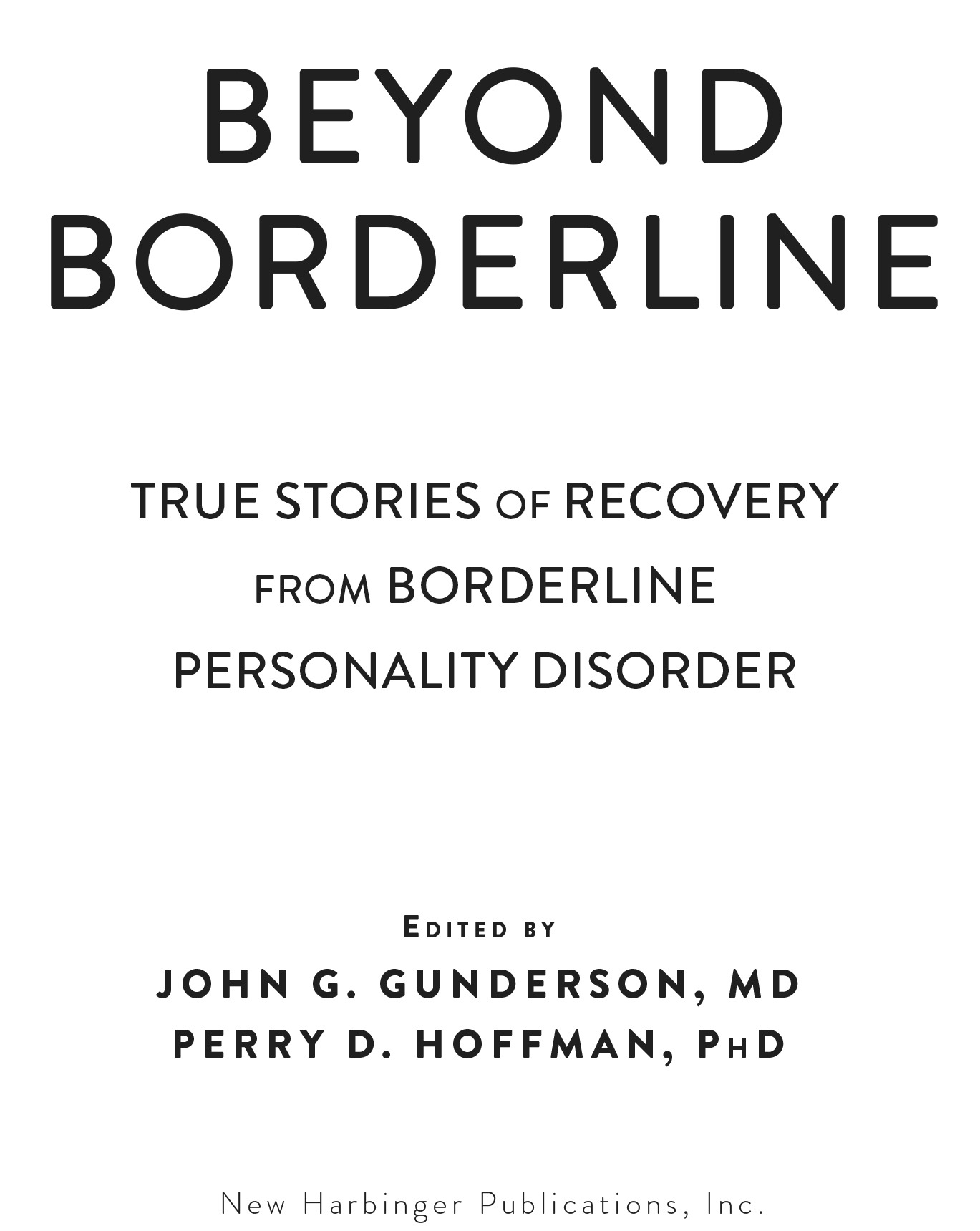
Publishers Note
This publication is designed to provide accurate and authoritative information in regard to the subject matter covered. It is sold with the understanding that the publisher is not engaged in rendering psychological, financial, legal, or other professional services. If expert assistance or counseling is needed, the services of a competent professional should be sought.
Distributed in Canada by Raincoast Books
Copyright 2016 by John G. Gunderson and Perry D. Hoffman
New Harbinger Publications, Inc.
5674 Shattuck Avenue
Oakland, CA 94609
www.newharbinger.com
Cover design by Amy Shoup; Interior design by Michele Waters-Kermes; Acquired by Melissa Valentine; Edited by Brady Kahn
All Rights Reserved
Library of Congress Cataloging-in-Publication Data
TK
Contents
John
by Brandon Marshall
F or five years my life was a living hell. I had no clue what was going on. I spent years talking to doctorssometimes three or four in one week. It wasnt until I received the diagnosis of borderline personality disorder that I was able to grab hold of my life. People only saw what was unfolding on ESPNthe DUI arrest, the domestic disputesthat was the story the public was absorbing. What they didnt seecouldnt possibly knowwas the days I sat in a dark room, the days that went by when I didnt utter a single word, and the persistent game of dramatic emotional changes that was going on inside me.
When I got the diagnosis I immediately felt better. I understood, I could be understood, and I could be treated. After doing the work, I earned my life back.
At McLean Hospital I decided to tell my story to the world. I had millions of people at my disposal through my platformmillions would hear my story. Maybe it was impulsivity that made me decide to go public. Dr. Gunderson sat me down and explained how vulnerable I would make myself. He talked about how the announcement would publicly magnify my symptoms and life. To be honest, he wasnt thrilled about my plan. He wanted to be certain I was ready. In any event, I am glad I followed this path, and I also greatly admire those who have decided to tell their stories in this book. I expect it was liberating for them just as it was for me. I look forward to a time when others will go public about their trials and hopefully with their triumphs with this trying disorder. The louder our voices, the more we will be heard. BPD is treatable, and people do not need to stay in the mental health system forever, unlike many other diagnoses.
My time at McLean Hospital presented me with some of the most phenomenally challenging experiences of my life thus far. Taking my life back meant losing what I thought was the most important part of methe fabric of my being, the things that made up the football player that I had been my whole life. I can never explain the feeling I felt when we got to the root of my issues with anger and fears of abandonment. I can still remember uncovering those issues like it was yesterday. There were so many times I found myself sitting in Dr. Gundersons office, my eyes welling with tears. The realization the sparkrevealed a heart filled with anger, pain, resentment, and sadness. My heart. The waves of emotion were profound and liberating.
I always tell people that while at McLean Hospital I discovered what life was really about. I didnt get my old life back. When I left, I was a totally different person. My eyes opened up to allow me to be my better selfa different person. I understood what I was feeling. I learned to validate those feelings and those of others. I also learned how to talk about those feelings. When I read the stories in this book, those memories return and I feel deeply for my fellow patients with BPD. This time it is not the feelings of anger and fear that tormented me when I began my recovery; it is feelings of sympathy and hope that I had not known before.
I left with the tools to cope and manage it all. I realized that the fight wasnt over, but I was and remain confident that I have the tools and skills to manage lifes challenges so I can have a healthy and effective life.
Looking back now, I know the most impactful part of all of the time I spent at McLean happened in the first week I was there. I was invited to a workshop comprised of doctors, clinicians, and patients. The most powerful voices of all were those of the patients.
Their stories gave me hope. This wonderful collection of stories by people with BPD who are in the process of recovery offers the same powerful message of hope to the many others whose BPD is untreated or is, too often, still not diagnosed.
I hope readers will join me in advocating for better awareness, and better treatment for those suffering as I have from borderline personality disorder. In hope, life springs back, and for me a purpose beyond football and family was laid before me. All of the patients in this book, and its readers, are now a part of that purpose.
S eldom does an illness, medical or psychiatric, carry such intense stigma and deep shame that its name is whispered, or a euphemism coined, and its sufferers despised and even feared.
Perhaps leprosy or syphilis or AIDS fits this category.
Borderline personality disorder (BPD) is such an illness. In fact, it has been called the leprosy of mental illnesses and the disorder with surplus stigma. It may actually be the most misunderstood psychiatric disorder of our age.
Perhaps the greatest instigators of BPDs stigma have been psychiatrists, psychologists, and social workers. For many years, clinicians spoke and wrote in pejorative terms about patients diagnosed with the disorder as the bane of my existence, a run for my money, exhausting, or treatment rejecting. In fact, professionals have often declined to work with people diagnosed with BPD. This rejection by professionals, which has seemed at times almost phobic, has spanned many decades. Patients with tendencies toward self-injury, suicide threats, and suicide attempts have been described in the literature as manipulative, treatment resistant, raging, or malignant. A causal connection between too much exposure to BPD patients and professional burnout has been commonly assumed.
Next page

